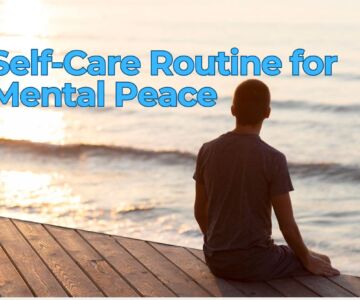 How to Make Your Bathroom Smell Good: Easy and Effective Tipsby admin / March 27, 2025
How to Make Your Bathroom Smell Good: Easy and Effective Tipsby admin / March 27, 2025Does Mouth Taping Really Work?
Mouth taping has gained popularity in recent years as a simple, low-cost technique to promote nasal breathing while sleeping. Advocates of this trend claim that it helps reduce snoring, improve sleep quality, and even boost overall health. But does mouth-taping really work? Let’s explore the science behind this trend, its potential benefits, risks, and whether it’s a safe solution for better sleep.
Table of Contents
ToggleWhat is Mouth Taping?
Mouth taping involves placing a piece of medical-grade tape over the lips before sleeping to keep the mouth closed. The idea is to encourage nasal breathing throughout the night, which proponents believe has numerous benefits.
How Does Mouth Taping Work?
Mouth taping prevents mouth breathing, forcing the body to rely on the nose for airflow. Nasal breathing is believed to:
✅ Filter out dust, allergens, and bacteria.
✅ Humidify and warm the air before it reaches the lungs.
✅ Produce nitric oxide, which helps regulate blood flow and oxygenation.
When the mouth is taped shut, the theory is that these natural processes improve, resulting in better oxygen intake, improved sleep quality, and fewer disturbances like snoring or dry mouth.
Potential Benefits of Mouth Taping
Although scientific evidence is limited, proponents claim several potential benefits:
1. Reduced Snoring
Mouth breathing is a leading cause of snoring. Taping the mouth can reduce snoring by encouraging nasal breathing, minimizing airway obstruction, and reducing vibrations in the throat.
2. Improved Sleep Quality
When nasal breathing is prioritized, it may help promote deeper, uninterrupted sleep. Better oxygen flow to the brain and body can lead to more restorative sleep.
3. Prevents Dry Mouth and Bad Breath
Mouth breathing often leads to dry mouth, which can cause bad breath and an increased risk of cavities. By taping the mouth, saliva production remains stable, preventing dryness and maintaining oral health.
4. Supports Better Oral Health
Mouth taping helps maintain the natural pH balance in the mouth, reducing the risk of bacterial growth, cavities, and gum disease.
Digital Contracts in Healthcare: Achieving Compliance and Streamlined Operations
Scientific Evidence: Is Mouth Taping Backed by Science?
While mouth taping may seem promising, scientific evidence is still lacking. According to experts and studies:
🔍 Limited Research: There are few clinical studies specifically examining the effectiveness and safety of taping. Most claims are anecdotal, lack rigorous scientific validation.
🔍 Unclear Long-Term Effects: The long-term impact of consistently using mouth tape is not well understood. Some experts caution against relying on it as a long-term solution.
🔍 May Not Work for Everyone: Individuals with conditions such as sleep apnea, nasal congestion, or structural issues in the nasal passage may not benefit from taping.
Potential Risks and Side Effects of Mouth Taping
While mouth taping may offer some benefits, it’s not without potential risks:
⚠️ Breathing Difficulties
If the nasal passage is blocked due to congestion, allergies, or a deviated septum, forcing nasal breathing through taping can cause discomfort and difficulty breathing.
⚠️ Skin Irritation and Allergies
Prolonged use of tape may cause skin irritation or allergic reactions, especially for those with sensitive skin.
⚠️ Risk of Sleep Apnea Worsening
For individuals with undiagnosed obstructive sleep apnea (OSA), taping may worsen the condition by limiting airflow and increasing the risk of oxygen deprivation.
Who Should Avoid Mouth Taping?
Mouth taping is not suitable for everyone. People who should avoid mouthtaping include:
🚫 Those with nasal congestion, sinus infections, or allergies.
🚫 Individuals with diagnosed or suspected sleep apnea.
🚫 People with respiratory conditions such as asthma or chronic obstructive pulmonary disease (COPD).
Safer Alternatives to Mouth Taping
If you’re looking for ways to improve sleep and reduce snoring without mouth-taping, consider these safer alternatives:
Nasal Strips: These adhesive strips open the nostrils, allowing for easier nasal breathing.
Humidifiers: Adding moisture to the air can reduce nasal congestion and promote easier breathing.
Positional Therapy: Sleeping on your side can prevent the tongue from obstructing the airway, reducing snoring and improving airflow.
Consulting a Sleep Specialist: A sleep study or consultation with a specialist can help identify the underlying cause of sleep disturbances and provide personalized solutions.
What Do Experts Say About Mouth Taping?
Sleep experts and doctors remain cautious about taping due to the lack of strong evidence. The American Academy of Sleep Medicine (AASM) does not endorse mouth taping as a standard treatment for sleep disorders.
Dr. Kathrin B. Weiss, a leading sleep specialist, notes:
“While the idea of promoting nasal breathing through taping is intriguing, it’s essential to ensure that individuals do not have underlying conditions like sleep apnea that could worsen with mouth taping.”
Is Mouth Taping Right for You?
If you’re considering taping, it’s best to:
Consult with a healthcare provider or sleep specialist first.
Test it cautiously and discontinue use if you experience discomfort or breathing difficulties.
Use medical-grade hypoallergenic tape to minimize skin irritation.
Final Verdict: Does Mouth Taping Really Work?
Mouth taping may offer benefits for some individuals, but it’s not a one-size-fits-all solution. The lack of scientific backing and potential risks make it essential to approach this trend with caution. If you’re looking to improve your sleep or address snoring, exploring evidence-based alternatives and consulting a sleep specialist is the safest route.
FAQs About Mouth Taping
Is mouth taping safe for children?
No, mouth is not recommended for children due to the risk of choking and breathing difficulties.
How can I test if mouth taping works for me?
Start by using a small piece of hypoallergenic tape and monitor your breathing and comfort. If discomfort or breathing issues arise, discontinue use.
Can mouth taping cure sleep apnea?
No, taping is not a treatment for sleep apnea. It may worsen the condition and should not be used without medical advice.
By understanding the potential benefits and risks of taping, you can make an informed decision about whether this trend is worth trying—or if safer, more proven alternatives might be a better fit.
Related Posts

The Beginner’s Guide to At-Home Workouts Without Equipment
In a world where busyness and convenience often clash, finding time to go to the gym can feel like climbing a mountain. But here’s some good news: you don’t need fancy equipment, a gym membership, or even a lot of space to get fit. Welcome to the world of home workouts without equipment, where your body becomes your gym, and every corner of your home is a potential workout zone.
Whether you’re a total beginner or returning to fitness after a long break, this guide is your one-stop resource to begin your bodyweight exercise journey at home.
Table of Contents
ToggleWhy Choose a Home Workout Without Equipment?
1. No Excuses, No Boundaries
Bodyweight workouts without equipment strip fitness down to the essentials. You can do them anytime, anywhere—from your bedroom floor to a hotel room. No excuses like “the gym is too far” or “I forgot my gear.”
2. Budget-Friendly Fitness
Skip the treadmill and the expensive weights. Your body is the tool. These workouts cost nothing and still provide significant returns in strength, flexibility, endurance, and mood.
3. Beginner-Friendly
Bodyweight workouts without equipment let you progress at your own pace. Modify exercises based on your current fitness level and gradually build intensity as you get stronger.
The Basics: What Are Bodyweight Exercises?
Bodyweight workouts, which use your own body as resistance, help you build strength and endurance without equipment. They engage multiple muscle groups, promote functional movement, and improve balance and coordination.
Some well-known examples:
- Push-ups
- Squats
- Planks
- Lunges
- Mountain climbers
They’re simple, scalable, and effective. Now, let’s get into the real stuff—the actual workouts.
Beginner At-Home Workout Routine (No Equipment Needed)
Here’s a simple yet powerful full-body routine to start with. This circuit targets all major muscle groups and can be completed in 20–30 minutes.
Warm-Up (5 minutes)
Don’t skip this part—it gets your blood flowing and prevents injury.
- 30 seconds jumping jacks
- 30 seconds arm circles (forward + backward)
- 30 seconds high knees
- 30 seconds butt kicks
- 30 seconds hip circles
- 1 minute bodyweight squats
- 1 minute forward lunges
Full-Body Workout (Repeat 2–3 rounds)
- Bodyweight Squats – 15 reps
Targets: Quads, hamstrings, glutes
Tip: Keep your chest up, feet shoulder-width apart, and push from your heels.
- Push-Ups – 10 to 12 reps
Targets: Chest, triceps, shoulders
Tip: Modify on your knees if full push-ups are too difficult at first.
- Glute Bridges – 15 reps
Targets: Glutes, hamstrings, core
Tip: Squeeze your glutes at the top for maximum activation.
- Plank – 30 seconds (increase to 1 min over time)
Targets: Core, shoulders, back
Tip: Keep a straight line from head to heels—no sagging hips.
- Reverse Lunges – 10 reps per leg
Targets: Legs, glutes, core stability
Tip: Step back slowly to engage more muscle.
- Superman Hold – 30 seconds
Targets: Lower back, glutes
Tip: Raise both arms and legs as high as you can without straining your neck.
- Mountain Climbers – 20 seconds (fast pace)
Targets: Core, cardio, agility
Tip: Keep your back flat and core tight.
Cool-Down and Stretch (5–10 minutes)
Help your body recover and prevent soreness:
- Forward fold (hamstrings) – 30 seconds
- Child’s pose (lower back) – 1 minute
- Shoulder stretch – 30 seconds each side
- Cobra stretch (core) – 30 seconds
- Cat-cow pose (spine) – 1 minute
Tips to Stay Consistent and Motivated
1. Create a Workout Schedule
Commit to 3–4 days per week. Morning, evening, lunch break—whatever suits your lifestyle best.
2. Track Your Progress
Use a journal or fitness app to track reps, sets, and how you feel post-workout. Progress is a great motivator.
3. Start Small, Grow Gradually
Don’t overdo it on day one. Focus on form, then increase volume or difficulty over time.
4. Add Variety to Avoid Boredom
Try themed days (like “Core Monday” or “Cardio Friday”) or mix in yoga or dance workouts for fun.
5. Use Visual Guides
YouTube, fitness apps, and even printable PDF workouts can help you follow proper form until you feel confident doing exercises solo.
Benefits You’ll Notice Within Weeks
- Increased energy levels
- Improved posture and flexibility
- Better sleep quality
- Toned muscles and core strength
- Boosted mental clarity and mood
And perhaps the most important one: A renewed sense of self-discipline and confidence.
Bonus: Mindful Movement = Better Results
Fitness isn’t just about how you look—it’s about how you feel. Connect your breath to each movement. Be intentional. Focus on quality over quantity. This mindful approach not only reduces injury risk but also deepens your awareness of your body’s needs.
Final Thoughts: Your Body Is the Gym
Don’t underestimate the power of simplicity. A home workout without equipment isn’t just a fallback when you can’t make it to the gym—it’s a legitimate fitness lifestyle. It’s about freedom, discipline, and self-awareness.
So roll out a yoga mat, put on your favorite playlist, and take the first step. The hardest part is getting started—but once you do, your body (and mind) will thank you.

How to Start a Daily Self-Care Routine for Mental Peace
Table of Contents
ToggleWhy Mental Peace Matters in a Hectic World
In today’s fast-paced digital world, we often glorify being busy while quietly neglecting our own well-being. Stress becomes a silent companion, and anxiety feels like background noise. But what if the key to serenity isn’t in changing our lives drastically, but in slowing down and prioritizing ourselves — one day at a time?
A daily self-care routine isn’t just about pampering. It’s about mental maintenance — giving your brain space to breathe and your heart room to feel. When done mindfully, self-care creates mental peace, builds resilience, and boosts overall happiness.
Let’s explore how you can start a simple yet powerful self-care routine that transforms your mental health and helps you navigate life with clarity and calm.
Step 1: Understand What Self-Care Really Means
Self-care isn’t selfish — it’s survival. It’s any activity you deliberately do to take care of your mental, emotional, or physical health. From journaling to walking barefoot on grass, self-care is deeply personal.
There’s no one-size-fits-all here. Your routine should reflect your needs, your goals, and most importantly, what brings you peace.
Step 2: Set Your Intention — Why Do You Want a Routine?
Before building a routine, ask yourself:
- Do I feel overwhelmed daily?
- Am I struggling with anxiety or low energy?
- Do I crave more mindfulness and presence in my day?
Your “why” will help you stay committed. If your goal is to feel mentally lighter and emotionally stronger, that becomes your north star.
Step 3: Build a Morning Ritual to Ground Your Day
A solid morning routine is the foundation of mental clarity. You don’t need to wake up at 5 a.m. or meditate for an hour. Even 15 minutes of focused self-care can make a huge difference.
Morning Self-Care Ideas:
- Gratitude journaling (try The Five Minute Journal – simple and powerful)
- 10-minute meditation (apps like Headspace or Insight Timer are beginner-friendly)
- Stretch or gentle yoga (YouTube channels like Yoga with Adriene offer short sessions)
- Hydration + light breakfast to fuel your brain
Tip: Keep your journal and water bottle on your nightstand. When you wake up, they’ll remind you to start your day with intention.
Step 4: Weave Mini Self-Care Moments Into Your Day
Self-care doesn’t need a fixed schedule. You can build micro-moments of peace throughout your day:
- Mindful breathing before a meeting
- Digital detox breaks — 5 minutes away from screens every hour
- Nature therapy — step outside, even if it’s just on your balcony
- Music reset — play calming instrumental music while working
These small acts bring your nervous system back to baseline and help reduce mental fatigue.
Step 5: Create an Evening Wind-Down Routine
Evenings are a chance to release the day and recharge for tomorrow. The key is consistency.
Night Self-Care Ideas:
- Unplug from screens at least 30 minutes before bed
- Write in a reflection journal — What went well today? What are you letting go of?
- Herbal tea or a warm bath to calm your mind
- Read a calming book instead of scrolling social media
- Use mindfulness apps like Calm or Breethe for sleep stories or guided relaxations
Tip: Recommend products like a weighted blanket, lavender pillow mist, or a soothing night lamp. These enhance the sleep ritual and can be part of your affiliate strategy.
Step 6: Customize Your Weekly Self-Care Planner
Each day doesn’t have to look the same. Use a self-care planner or app to track your mood, habits, and reflections. Here’s a simple weekly format:
- Monday: Goal-setting & breathwork
- Tuesday: Nature walk or gardening
- Wednesday: Creative hobby (art, music, DIY)
- Thursday: Digital detox evening
- Friday: Social self-care — call a loved one
- Saturday: Deep cleaning or decluttering
- Sunday: Reflection + planning the week ahead
Recommended Tools:
- Self-Care Journal from Papier (aesthetically pleasing and practical)
- MyLife App (mood check-ins + personalized mindfulness)
- Habit Tracker Apps like Done or Tally for building consistency
Step 7: Practice Saying “No” — Protecting Your Peace
One of the most powerful forms of self-care is boundary setting. Mental peace often suffers because we overcommit or say “yes” when we mean “no.”
Start small:
- Say no to non-urgent tasks after work
- Limit time with energy-draining people
- Give yourself permission to rest without guilt
Step 8: Track Progress, Not Perfection
Don’t aim for a perfect daily self-care routine streak. Some days you’ll feel on top of it. Other days, brushing your teeth and drinking water may be all you can do — and that’s okay.
Use journaling or apps to track how your self-care impacts your:
- Mood
- Sleep
- Productivity
- Emotional resilience
Over time, these small acts become your personal healing system.
Step 9: Explore and Evolve
Self-care isn’t static. What works for you in summer might not suit you in winter. Some seasons need more solitude; others might call for creativity and connection.
Keep checking in:
- Does this routine still support me?
- What brings me the most peace lately?
- Is there something new I want to try?
Stay curious about yourself. That’s the most nurturing form of self-love.
Final Thoughts: Your Peace is Non-Negotiable
Starting a daily self-care routine isn’t just about checking off boxes — it’s about returning to yourself. It’s a reminder that you’re worthy of attention, time, and kindness.
Your peace is not a luxury. It’s a priority.
So, breathe. Begin. And remember: even the smallest act of self-care is a rebellion against burnout.

